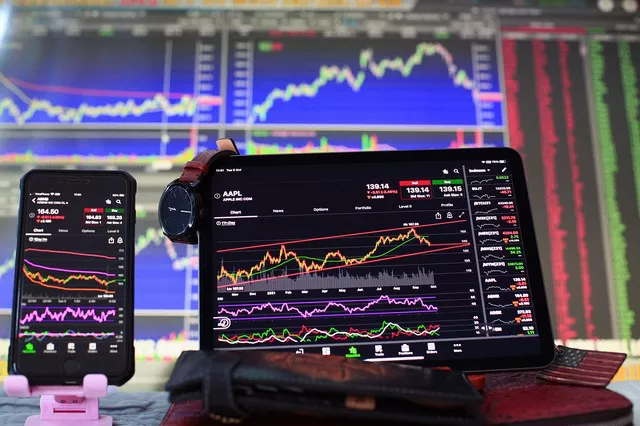Futures play a vital role in the functioning of the stock market, providing investors with a mechanism to hedge against price fluctuations, speculate on future market movements, and diversify their investment portfolios. Understanding how futures work in the stock market is essential for both seasoned traders and newcomers alike. In this comprehensive guide, we will explore the intricacies of futures trading within the stock market, shedding light on its mechanics, benefits, and implications for market participants.
The Basics of Futures Trading
Futures contracts are standardized agreements to buy or sell a specified asset at a predetermined price and date in the future. In the context of the stock market, futures allow investors to trade contracts based on the future price of a particular stock index, such as the S&P 500 or the Dow Jones Industrial Average. These contracts are traded on organized exchanges, providing liquidity and transparency to market participants.
Leveraging Opportunities with Futures
One of the key features of futures trading in the stock market is the ability to leverage capital efficiently. Leverage allows investors to control a larger position size with a relatively small amount of capital. By putting up a margin – a fraction of the contract value – as collateral, traders can amplify their exposure to the underlying stock index. This leverage ratio enables investors to potentially magnify their profits, but it also increases the level of risk associated with trading futures.
Hedging Against Market Risks
Futures serve as powerful tools for hedging against market risks in the stock market. Institutional investors, fund managers, and individual traders utilize futures contracts to mitigate exposure to adverse price movements. For example, a portfolio manager may use stock index futures to hedge against potential losses in their equity holdings during periods of market volatility. By taking offsetting positions in futures contracts, investors can protect their portfolios from downside risk while maintaining exposure to potential upside gains.
See Also: What does 20x mean in futures?
Speculating on Market Movements
In addition to hedging, futures provide investors with the opportunity to speculate on future market movements in the stock market. Traders can take long positions if they anticipate a rise in the stock index’s value or short positions if they expect a decline. This flexibility allows investors to profit from both bullish and bearish market conditions. Moreover, futures markets operate nearly 24 hours a day, providing traders with ample opportunities to capitalize on global market developments and news events.
Market Liquidity and Efficiency
Futures trading enhances market liquidity and efficiency in the stock market by facilitating price discovery and risk transfer. As futures contracts are standardized and traded on organized exchanges, they attract a wide range of market participants, including institutional investors, speculators, and arbitrageurs. This diverse pool of participants fosters robust trading activity, tight bid-ask spreads, and efficient price formation. Furthermore, futures markets often lead stock markets in terms of price movements, providing valuable insights into future market trends.
Regulatory Oversight and Transparency
The futures market in the stock market operates under the regulatory oversight of government agencies, such as the Commodity Futures Trading Commission (CFTC) in the United States. These regulatory bodies enforce rules and regulations designed to ensure fair and orderly trading, protect investors, and maintain market integrity. Transparency is also a hallmark of futures trading, with exchanges providing real-time market data, trade execution reports, and position disclosures to market participants and regulatory authorities.
Arbitrage Opportunities and Price Convergence
Arbitrageurs play a crucial role in the efficient functioning of futures markets in the stock market. Arbitrage involves exploiting price differentials between related assets or markets to earn risk-free profits. In the context of futures trading, arbitrageurs capitalize on discrepancies between the futures price and the underlying stock index’s spot price. By buying or selling futures contracts and simultaneously trading the underlying stocks, arbitrageurs help ensure price convergence between the two markets, thereby reducing inefficiencies and enhancing market stability.
Risk Management Strategies
Successful futures trading in the stock market requires sound risk management strategies to navigate the inherent uncertainties and volatility of the markets. Diversification, stop-loss orders, and position sizing are essential tools for managing risk and preserving capital. Additionally, traders should stay informed about market developments, economic indicators, and geopolitical events that may impact stock prices and futures markets. By staying disciplined and adhering to a well-defined trading plan, investors can mitigate risk and improve their chances of success in futures trading.
Conclusion
Futures play a central role in the stock market ecosystem, providing investors with a powerful toolkit for managing risk, speculating on market movements, and enhancing portfolio performance. By understanding the mechanics of futures trading, leveraging opportunities, and implementing effective risk management strategies, investors can navigate the complexities of the stock market with confidence. Whether hedging against market risks, speculating on future price movements, or seeking arbitrage opportunities, futures offer a versatile and efficient means of participating in the dynamic world of stock market trading.

